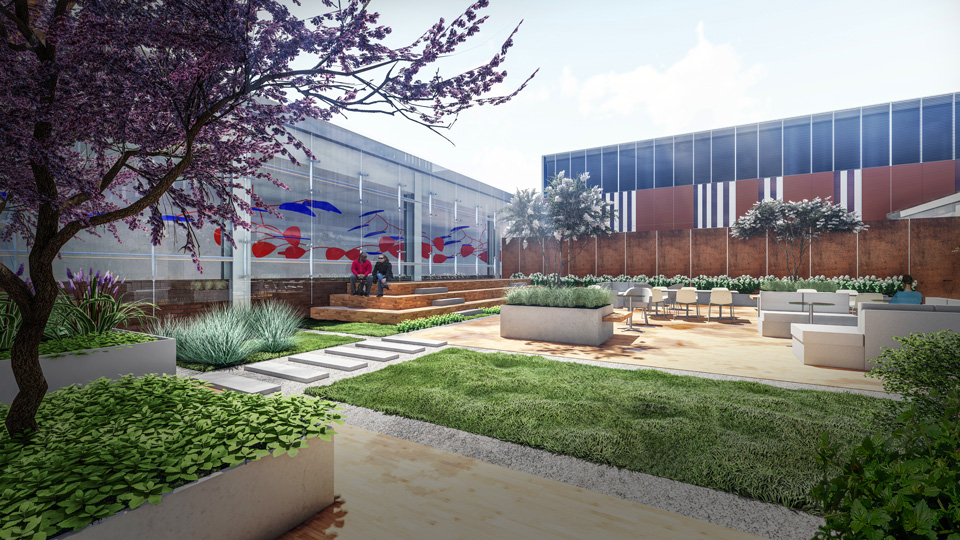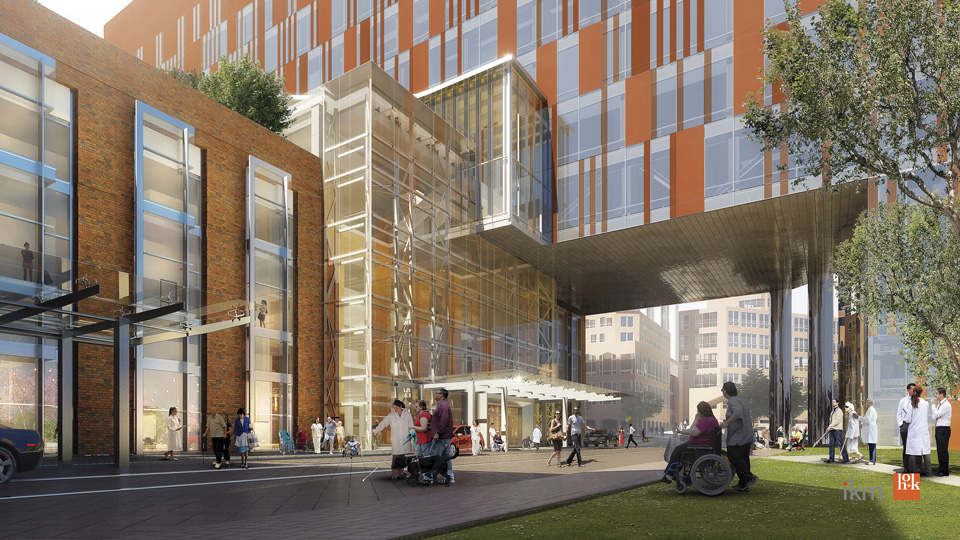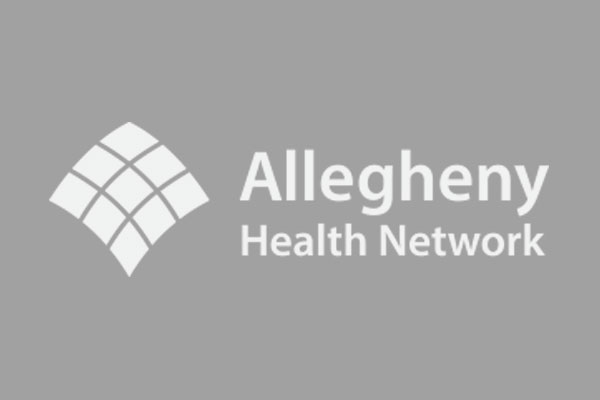
With the start of the new year, prognosticators shared their insights on topics ranging from automotive advances to zoological phenomenon with healthcare positioned neatly in the middle of general conversation. While much of that conversation turned to innovative technological approaches, more of it stemmed from the need to further patient engagement and the heightened patient experience. Perhaps not surprising is that trends begun in past years and moving into 2024 hold patient experience at the heart of advancements in new and developing technologies.
In an October 2023 Forbes.com article titled “The 10 Biggest Trends Revolutionizing Healthcare in 2024,” author Bernard Marr cited one of those trends as Personalized Medicine. “At a high level, this term refers to the creation of tailored treatment plans for individual patients. In practice, this is increasingly being done with technology and data … Many researchers believe that a personalized approach to healthcare leads to better patient outcomes and more efficient use of medical resources and will play an increasingly important role in addressing the healthcare challenges of the future.” He is not alone in that thinking. Chris Martini, in his article “3 Patient engagement trends to watch in 2024” (Physicianspractices.com, December 12, 2023) noted that patient engagement will remain a top priority within physician practices in 2024. He added that physician practices “understands and appreciates the value of in-office, point-of-care education and technology to engage the right patient with the right content before they see their physician. Not to mention patients are craving educational content during their visits. Moving into 2024, practices will increasingly look to point-of-care education and engagement tools to feature content tailored to specific goals and patient populations to drive a more personalized experience.” Further, Fred Bazzoli, Editor-in-Chief, Healthdatamanagement.com (“Embracing change in patient care: Top trends shaping 2024”, December 1, 2023) posited that improvements in patient experience are still at the forefront with a healthcare evolution building on trends to increase and address the growing awareness of bettering patient experience. He continued that during Covid 19, the use of technology allowed for patients to gain access to healthcare services and information. “The number of Medicare visits conducted through telehealth surged 63-fold during the pandemic to 52.7 million in 2020, according to a report by the Department of Health and Human Services. Most beneficiaries (92 percent) received telehealth visits in their homes, which was not permissible in Medicare before the pandemic.” He added that while those visits have lessened from its peak, it would rebuild slowly over several years along with healthcare consumers becoming more accustomed to connecting with care and information through their smart phones with specialized apps citing the AI powered Aiberry, a mental health assessment platform, as an example. “Providers and payers see value in using technology to improve access to consumers … The measured use of technology in improving access and boosting the patient experience can enable quicker access to care before conditions get serious, enabling organizations to pre-emptively offer services earlier, keeping patients healthier and empowering them to be more engaged with their own care.” He also named genomics, his second trend, as a means of customizing care along with patient-centric care, evolving to become more practical, as his third trend. But what of other technologic innovations and how do they dovetail with care while enhancing issues of access and patient experience? Artificial Intelligence or AI as it is more commonly called, sits high on the list of trends. Not only is it a useful tool in healthcare marketing, personalizing content and targeting markets more effectively, but also how medicine is developed. Bernard Marr pointed to Generative AI percolating to the top in 2024. “It will democratize access to other transformative AI applications, making it easier to implement and interpret results and generate personalized recommendations. And it can create chatbots and virtual assistants to help at every state of the patient journey.” Dhruv Suyamprakasam, CEO and Co-Founder of iCliniq in a Medicaleconomics.com article titled “In 2024, Technology will change primary care as we know it” (October 20, 2023), wrote that “Generative AI and emerging technology have the potential to bring between $1 and $1.5 trillion in investments through 2027. To further the use of technology in healthcare, we have started to see ChatGPT-4 being used to improve, not threaten, physician/patient engagement. It’s an enhancement and it’s only the beginning of how generative AI can play the role of ‘AI-as-an-ally’ in healthcare.” He concluded that technology will offer more efficient patient/doctor consultations that may result in a healthier overall population. By embracing technology, the healthcare industry can recenter itself on successful patient outcomes. “This can be done if the focus is more on the why: People.” Looking closer to home, how are our hospitals and healthcare systems combining technological innovations with an eye toward patient experience to aid the region’s population?

Allegheny Health Network
With its flagship hospital, Allegheny General Hospital based on Pittsburgh’s North Side, along with other, numerous area hospitals, outpatient centers, clinics and physician practices, Allegheny Health Network (AHN) continues to invest in the breadth and depth of clinical technologies, capabilities and programs. “We also continue to invest in our most important resource ─ our workforce ─ by developing clinical programs and technologies that allow employees to work differently and more efficiently while still providing outstanding care to our patients,” said Don Whiting, MD, Chief Medical Officer, AHN. “For example, in 2023, AHN opened a new virtual ICU command center that allows clinicians to monitor intensive care patients remotely from a central location. We also launched a digital nursing program that allows off-site nurses to assist with inpatient admissions and discharges, relieving bedside nurses from those administrative work burdens and freeing them to spend more time focused on the clinical care needs of their patients. Collectively, such programs deploy technology in a way that allows caregivers to work smarter and more efficiently, improving the patient experience and the employee working environment,” Dr. Whiting said. “Front-line caregivers can focus more fully on the patient, while allowing technology and support staff to relieve some of the administrative and record-keeping burdens associated with health care.” The year 2023 also saw the unveiling of new programs and facilities, among them, a Skin Cancer Center at West Penn Hospital, a new imaging center at the Bethel Park Health + Wellness Pavilion, and a new North Fayette Health + Wellness Pavilion, opening in March 2023 and serving as the seat of AHN’s Center for Reproductive Medicine. “The North Fayette pavilion was a $70 million investment in Pittsburgh’s western suburbs, an exciting expansion of our footprint into the region’s airport corridor,” Dr. Whiting continued. “The pavilion also houses primary care; behavioral health services for adults and children; a full range of diagnostic imaging capabilities, and on-site specialists in orthopedics, endocrinology, rheumatology, obstetrics and gynecology, among other services.” Announced in 2023, new projects underway or in the planning stages include a five-story integrative neurosciences hub now under construction on the AHN Allegheny General Hospital campus, which will open in late 2024 or early 2025. “This new integrated neuroscience center will provide curated care of complex neurologic diseases, in a way that empowers patients and gives them all the resources they need to live their best lives,” Dr. Whiting said. Also in 2024, construction begins on a new Canonsburg Hospital, a $232 million investment that replaces the existing Canonsburg facility, ushering in a new era of expanded services and state-of-the-art capabilities to meet the diverse and growing health needs of the community. Also under construction is a new orthopedics and sports medicine facility in Erie, Pa., slated to open in mid-2024. Among the many, new advancements and/or first technologies and treatment methods unveiled in 2023 and into 2024 are the region’s first full-body 3D imaging system, the VECTRA WB360, providing custom digital surveillance for skin abnormalities and potential skin cancers. At the time of the VECTRA unveiling, the AHN system was but one of 15 in the United States. In conjunction with the VECTRA rollout and as part of AHN’s expanded skin cancer surveillance program, AHN is now conducting remote, AI-assisted dermatological screenings in primary care office settings. “Providing specialty screenings at the primary care point-of-contact is another way that AHN is making care more convenient for patients and promoting better population health.” AHN also became the first health system in the region, and among the first in the country, to use a new, cutting edge electrical pulse technology, Aliya Pulsed Electrical Field, to target and eradicate cancer cells while preserving healthy adjacent tissue. Additionally, advanced technologies offered by AHN in 2023 included a novel radiation-emitting implant, known as the Gamma Tile, to treat patients with life-threatening, recurrent brain tumors and a wearable migraine headache therapy called remote electrical neuromodulation to manage headaches without medication, among others. AHN was also the first health system in Western Pennsylvania to enroll patients in a new clinical trial to evaluate a first-of-its-kind treatment option for heart failure called the AccuCinch® Ventricular Restoration System, a minimally invasive procedure that reduces the size of the heart’s left ventricle, improving the heart’s strength, blood pumping function, and mitigating heart failure symptoms. To reach broader audiences, AHN deployed existing technologies to new geographies, such as expanding the Mako SmartRobotics surgical system to Canonsburg Hospital for those in Washington County needing hip or knee replacement surgery, allowing patients to remain close to home. AHN also became the first health network in the state to perform outpatient, “same-day” hip replacement procedures at a stand-alone community ambulatory surgery facility, greatly improving the overall comfort and convenience of the patient’s surgical experience; and became one of the first in the Pittsburgh area to perform robotic-assisted prostate surgery on an outpatient basis, allowing patients undergoing a prostatectomy to return home on the same day, improving their surgical experience and shortening recovery times. “Expanding access to our world-class clinical programs and providing advanced care closer to where our patients live and work are two of AHN’s top priorities,” Dr. Whiting said. AHN and its parent company, Highmark Health, continue to explore how to best utilize traditional AI (task-oriented artificial intelligence) and generative AI (next-generation artificial intelligence that cannot only analyze existing data, but also create new, personalized sets of information) to improve patient care, customer experience and caregiver efficiency. “Because a goal of reinventing health requires continuous innovation, AHN is committed to testing and learning, particularly in the generative AI space,” Dr. Whiting added. Earlier this year, Highmark Health launched a dedicated generative AI program, composed of representatives across the organization, to serve as a learning incubator and centralized decision hub. They are also working with their partners, including Google, to learn, create best practices, and design the future for AI. Currently, traditional AI can be found embedded in many of the tools and technologies AHN uses on a daily basis in healthcare including the new VECTRA skin-mapping machine (mentioned earlier) at West Penn Hospital that takes photos of a patient’s entire body using 92 high-definition cameras, then uses AI to compare the patient’s lesions and moles to a massive set of images in its own database that have a known diagnosis. An AI algorithm then calculates a score to quantify the risk associated with the size, shape and color of the lesion, helping to guide the clinician as results of the imaging are further analyzed. “At AHN, innovation is the backbone of our health network,” Dr. Whiting concluded. “Health care continues to evolve rapidly, and at AHN, we are always at the forefront of that evolution.”

Independence Health System
Nationally recognized for quality care, the recently named Independence Health System (IHS) was formed in January 2023, comprised of Butler Memorial, Clarion, Frick, Latrobe and Westmoreland Hospitals serving more than 10 counties. With tertiary services and programs that have garnered accolades and high ratings from state and national sources, IHS offers patients low cost, high quality care in specialties such as cardiology, cardiovascular and thoracic surgery, orthopedics and sports medicine, women’s health, obstetrics, robotic surgery and primary care. Beyond that, Independence Health System looks toward meeting patient needs through clinical expertise, technologic advances and programmatic depth. “Not only did we create a health system with great reach but did so by keeping care local and in our communities,” said David M. Rottinghaus, MD, President, Physician Network for IHS. “We are doing that with top notch care, attention to safety, and high tech procedures, reflected in our quality performance scores. We continue to bring care locally, offering preventative care and wellness but we also have the high quality, innovative services available when needed.” Not to be lost is the fact that IHS is also a proponent of high-quality patient care and the positive patient experience. “We pride ourselves on our outcomes, which demonstrates our emphasis on high quality care,” added Carol Fox, MD, Chief Medical Officer, IHS. “But we also value and believe in “high touch” care, care that is patient-centric, compassionate and committed to excellence.” Supporting that high touch ideal is IHS’s commitment to wellness and preventative care. “These types of care often get overshadowed by high technology procedures, but we look at early detection as a way of treating things more effectively,” Dr. Fox continued. “It’s an early first step in health care that can lead to appropriate diagnoses and treatment rather then finding something later, when care may be more difficult.” Make no mistake however, Independence Health System firmly embraces innovative, technological advances to serve their populations. This year, IHS thoracic surgeons Michael Szwerc, MD, FACS, and Brian Lace, MD, were the first in Southwestern Pennsylvania to use the Siemens Cone Beam 3D CT scanner, a mobile imaging device that provides real-time tomography (CT) scans during minimally invasive lung procedures for immediate image feedback and precise visualization of nodules. Because of its portability, this new scanner can be rolled into place with no interference to the surgical robot or surgical team, leading to more timely patient care. With robotic surgery as a norm at IHS’s Surgical Institute, Latrobe Hospital, Dr. Szwerc recently surpassed 1,500 robotic cases, close to half being lung resections. When lung nodules are found, a multidisciplinary team decides how to manage the abnormality via options that may include surgical removal or CT-guided tissue removal using a robot-assisted bronchoscopic biopsy platform such as MONARCH, which aids thoracic surgeons in viewing hard-to-reach areas of the lung and obtaining tissue samples for biopsy, which can lead to earlier and more accurate detection of lung cancer. “We continue to expand services, especially minimally invasive procedures,” noted Dr. Fox. “That expansion is carefully considered, doing so where it makes the most sense with the right procedures for the right patients at the right time, especially for those at highest risk who may not be able to tolerate other surgeries or procedures.” For the second consecutive year, IHS Westmoreland Hospital has been rated among the nation’s best by Healthgrades for cardiac surgery, reflected in its America’s 50 Best Hospitals for Cardiac Surgery and one of only 12 hospitals in Pennsylvania to make its America’s 100 Best Hospitals for Cardiac Care (2022-2023). For three straight years, the hospital has also been a Five-Star recipient of specialty excellence honors for Coronary Bypass Surgery and Coronary Intervention Procedures from Healthgrades. At IHS Westmoreland Hospital, surgeries and procedures include open heart surgery; minimally invasive cardiac surgery; transcatheter aortic valve replacements (TAVR); transcarotid artery revascularization (TCAR); Watchman, a minimally invasive procedure for treating those with aortic stenosis; Atriclip, an abdominal aortic aneurysm treatment, and cardiac ablation among other procedures. In 2023, the cardiothoracic team began offering robot-assisted heart bypass surgery and heart valve repair, minimally invasive surgeries resulting in shorter hospital stays, reduced pain and quicker recovery times, among other benefits. The cardiothoracic surgeons have also been recognized by the Society of Thoracic Surgeons, who ranked Westmoreland’s heart surgery program among the top 2 percent nationwide. Independence Health System opened its newest outpatient facility, The Square at Connellsville, in October 2023. The 17,000 square foot, multi-specialty facility features family medicine, cardiology, orthopedics, walk-in lab, X-Ray and EKG, gastroenterology and general surgery. Independence Health System CEO Ken DeFurio stated “The Square at Connellsville represents our strong and tangible commitment to Connellsville. A commitment that is rooted in the health and wellness of those who turn to us for care, be it routine or advanced.” It also creates a gateway in the southern tier areas of Westmoreland County and Fayette County, offering easier access to advanced procedures described above.

St. Clair Hospital
Becoming even more thoughtful about resources, quality and patient experience, St. Clair Health, located in Pittsburgh’s South Hills, has embraced technology and innovation to meet those ends. “We think about safety and quality outcomes each and every day for our patients,” explained John T. Sullivan, MD, MBA, Senior Vice President and Chief Medical Officer. “We strive to give patients greater access to care while examining how we can transform that care in both the inpatient and outpatient settings, seeking to devise a broad new approach to healthcare.” Through technological advances and procedures, St. Clair Health continues to grow and examine technology as a significant component of its medical repertoire. Recent advances demonstrating that objective include its PET CT scanner for improved diagnoses of cancer and brain diseases; stereotactic body radiation therapy for more precise cancer treatment with fewer complications; a spine surgery navigation system for precise imaging guidance during spine surgery to reduce complications, and the most recent DaVinci Xi surgical robot, which incorporates fluorescent imaging to reduce complications. For the treatment of heart disease and stroke, St. Clair offers the transcarotid arterial revascularization (TACR) procedure to minimize stroke complications, as well as non-invasive cardiac surgical procedures for lower complication rates and quicker recovery times. A joint venture between St. Clair Hospital Cancer Center and UPMC Hillman Cancer Center affords patients a multidisciplinary collaboration among practitioners and better access to the highest level of expert care, all in a single location on the St. Clair Health main campus. Plus, St. Clair has continued to add to its arsenal of tools via its relationship with the Mayo Clinic Care Network through services such as eConsulting, eTumor Board, and health care consulting, among others. Based on its commitment to excellence, St. Clair Health has been a member of the Mayo Clinic Care Network since 2016. Unique to Western Pennsylvania, this clinical collaboration provides physicians with direct access to the world-renowned expertise of Mayo Clinic, further elevating the quality of patient care and value, ensuring that all patients receive the highest standard of care close to home at no additional cost. “Currently, our most exciting part of that relationship is with the Mayo Clinic’s Artificial Intelligence (AI) platform,” said Dr. Sullivan. “Unique to Mayo Care and scaled to become one of the largest healthcare information banks in the world, having access to this new approach to healthcare will help to inform decisions.” The Mayo Platform model, an AI-based solution for advanced patient diagnosis and treatment, aggregates a community of information to coordinate activity among its many partners world-wide. “The Mayo Clinic Platform model is a different model of healthcare, so it is a wonderful opportunity to participate in this transformative project.” This past fall, Mayo Clinic became an early adopter of Google technology that is attempting to boost the use of generative AI in the medical setting. For those more familiar with AI applications, Mayo Clinic is testing a new tool that allows clients to create their own chatbots using Google technology to search a plethora of various internal data. Incidentally, St. Clair Health was the first non-academic health system to partner with Google on a project using their large-scale computing power to increase the diagnostic capability of mammography to detect breast cancer. “Our patients, along with those from Northwestern University and the Royal Surrey Hospital in the U.K., were examined to explore if greater diagnostic accuracy could be achieved,” Dr. Sullivan continued. Expanding that concept to Mayo’s platform, “they have the ability to combine health information from more than 10 million diverse groups of patients. If say, a radiologist’s eye does not see something, with computer-aided AI, the amount of false negatives can be reduced.” Currently, Mayo is looking at 30 disease states using event resources to evaluate companies with additional AI capabilities. “We will begin to roll out some of these disease resources in 2024. It’s not about replacing the human, but aiding the human,” he noted. Dr. Sullivan enthusiastically looks toward the immediate future and beyond, embracing St. Clair’s progress and its desire to build on its successes in the future. Through innovative programs, technologies, a mindset of continuous improvement, and patient care and satisfaction firmly ensconced at St. Clair, continuing advances, such as AI in healthcare “will continue to be explored and welcomed with the goal of serving our communities with the best care possible,” Dr. Sullivan concluded.
UPMC
“Life changing care” is much more than a catch phrase at UPMC. It’s the source of inspiration that drives innovation, care and accessibility to cutting edge services and procedures at the Oakland-based provider. Perhaps that inspiration is summarized best by Ed McCallister, Senior Vice President and Chief Information Officer who said “The way we (UPMC) deliver quality healthcare is changing and investments in technology allows UPMC to be at the forefront of that change, providing care to patients when and how they want it. Investments in next generation technologies such as Artificial Intelligence (AI) will reduce some of the administrative burdens placed on healthcare workers and give clinicians more time to focus on delivering life-changing care to patients. Strategic investments in core IT infrastructure support UPMC’s growth and our investments in a robust clinical analytics program helps to identify patient needs and enables new models of care.” One such model of care that opened in spring 2023 is the UPMC Mercy Pavilion, home to the UPMC Vision Institute and the UPMC Rehabilitation Institute. As the first of its kind in the nation, the institute is a place of life-changing care for people with specialized vision or rehabilitation needs. Clinician scientists deliver comprehensive care in nearly 100 patient examination rooms and conduct groundbreaking research in more than 100,000 square feet of research space. Their discoveries and advances are being translated into therapies that restore vision and return motor function. In 2024, UPMC will introduce even more innovative services throughout the system. Among them, the UPMC Mercy Pavilion will offer the ability for patients and their families to practice with assistive technology for a variety of tasks and hobbies, from smart phone use to cooking to adaptive sports. The UPMC Mercy Pavilion has attracted patients from around the world for ground-breaking vision and rehabilitation care in a state-of-the-art clinical space. The life skills apartment and street simulation lab at the Pavilion also allows people to “practice” vital life skills and live more independently. The Urgent Eye Care Clinic at UPMC Mercy Pavilion gives Pittsburghers rapid access to acute ophthalmological care in the only such clinic in the state. And these advances benefit those beyond UPMC patients – the UPMC Mercy Pavilion supports the Uptown community, driving economic benefits, providing jobs and helping surrounding neighborhoods thrive. Other methods, models and ways of providing care have abounded throughout 2023 and beyond with technologies such as the MyUPMC online portal and mobile app. Here, the MyUPMC team focused on improving the ability of patients to schedule appointments when convenient rather than having to call during office hours. Regular check-ups, imaging, specialty appointments, even urgent care visits, can be scheduled with a few clicks through the site. Because access to care is a high priority at UPMC, MyUPMC serves as but one example of constant innovation and improvements that are being made for user convenience and ease so that all can readily access UPMC’s world class care from wherever they are located. In 2024, the team continues to concentrate on making the site even more convenient for those they serve to manage their care and insurance benefits through MyUPMC. As UPMC’s innovation, commercialization and venture capital arm, UPMC Enterprises works with innovators in Pittsburgh and worldwide to accelerate science from the bench to the bedside, developing solutions to healthcare’s most complex problems. UPMC is developing a portfolio of cutting-edge science and technology solutions that include companies UPMC Enterprises has launched. Some of those examples: Astrata, using natural language processing and other technologies to boost quality and improve population health; Avista, creating gene therapies for retinal diseases that can cause blindness; Novasenta, finding new targets to generate effective treatments for a range of cancers; Pip Care, a surgical journey platform that empowers patients to more fully participate in their care, and Safar TeleCare, connecting clinical specialists to bedside clinicians to improve clinical outcomes and reduce patient care delays. The Center for Connected Medicine at UPMC has identified AI as the most exciting emerging technology for healthcare. UPMC is harnassing AI for healthcare through its collaboration with Pittsburgh-based Abridge, which uses AI to generate a “smart” after-visit summary for patients and clinicians, allowing doctors to fully focus on their patients during a visit, rather than typing notes, and empowers patients to take a more active role in their healthcare. “UPMC is also embarking on a multi-year project to adopt a single electronic health record (EHR) to ensure seamless care for our patients,” McAllister added. “This is a massive transformation effort that will drive quality and innovation, improving the experience for patients and their caregivers. Both patients and clinicians will have easier access to information, communication and coordination.” Planning for this clinical and operational transformation, enabled by technology, is well underway. “This is a truly historic and exciting initiative that will transform the way UPMC delivers care and improves the patient experience,” he said.









